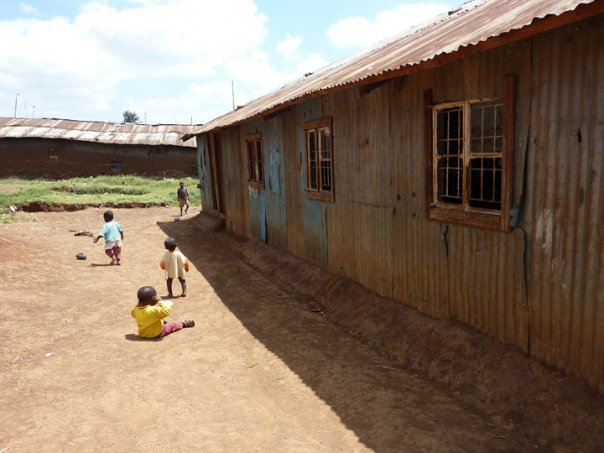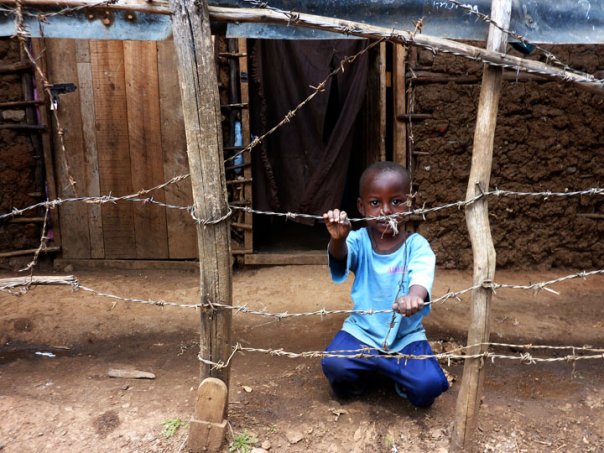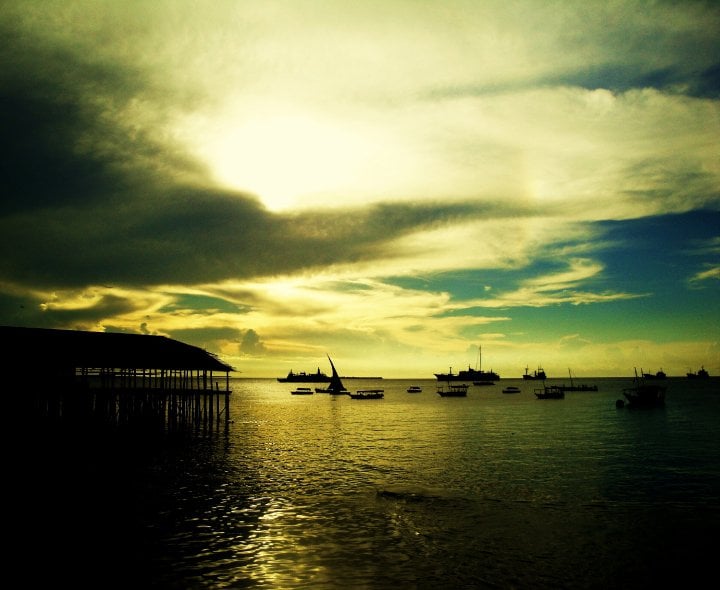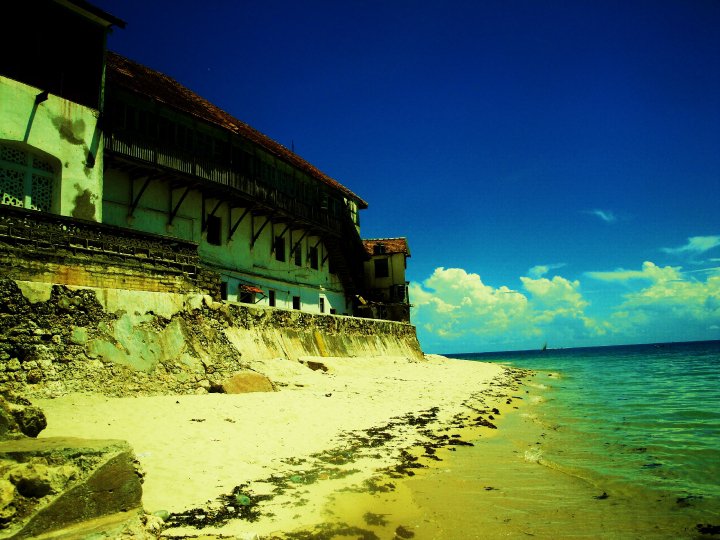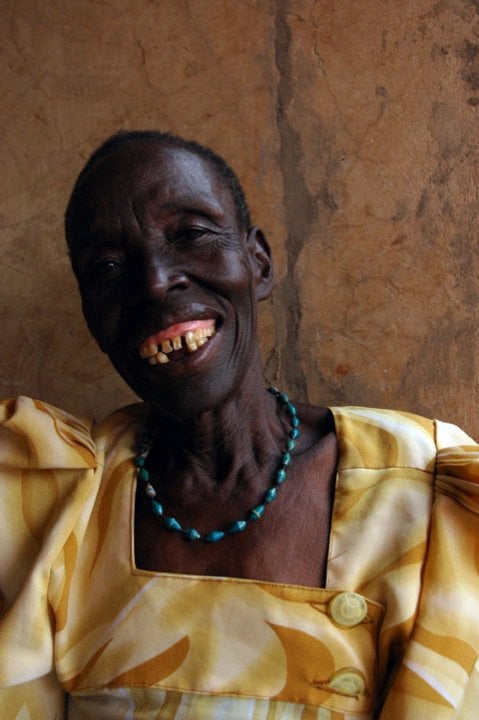I just read a
blog by a friend of mine who is serving full-time in Kenya, and it
really took me back.
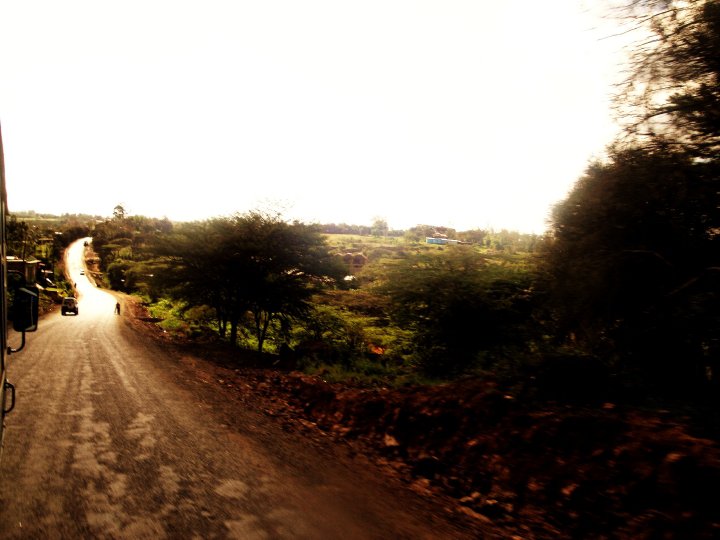
I spend most of my time dreaming about how the Africa I fell in love with could be a better place. You also know that I have plans to return there myself in full-time ministry. But reading Matt’s blog helped me to remember the darker side of Africa and the things that drove me absolutely crazy about living life there every day. There were mundane, complex issues that made the Race unbearable (and yet, I also believe that these things shoved me face-to-face with questions I couldn’t ignore, questions that ultimately sent me on a journey to find true faith in the face of hard realities).
Life as an American is hard in Africa, even if you get past the deep-rooted shame that is the mindset of entitlement. It’s particularly hard for white or lighter-skinned Americans, because you stand out in undisputable ways. The American mindset of entitlement collides in a disgusting wreck with the reality of poverty that is prevelant in many African communities. Some may see us as a walking ATM; filthy, stinkin’ rich and able to help them out of their poverty, one hand-out at a time.
In America, we aren’t used to being chased down and asked for much. Most of the time, if a homeless person approaches us, we don’t even roll down the window of our cars. This, of course, is not okay, but it’s what we do. We don’t often encounter volatile, determined homeless people. And if we do, we usually call the police.
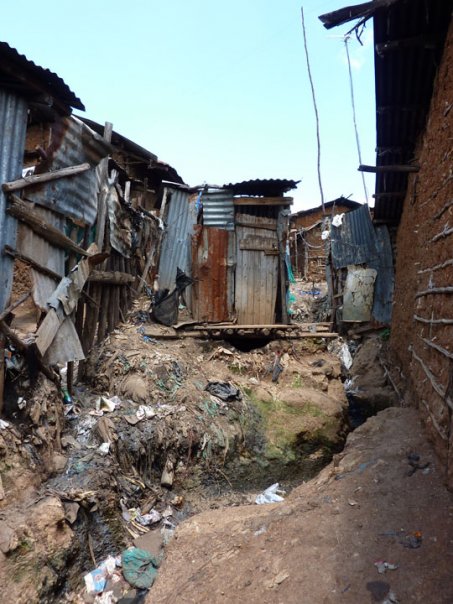
Now, imagine you are in an entire country of homeless people. Most probably have homes (although we would cosider most of them unlivable, even for the U.S. homeless population) but are in desperate, aching need. The mere pigment of your skin might as well be a flashing neon sign that screams “WEALTH BEYOND YOUR WILDEST DREAMS”. You are like a flame, and they are moths, driven to the glow of your blazing white skin and the jingle of coins in your pocket.
To someone who considers themself a “poor missionary”, this is a source of never-ending confusion, exasperation, and anger. Can you possibly be expected to give to everyone who asks of you? There is no way conceivable that you can. You live day-to-day, avoiding those who make an unwarranted approach, those who would capture you in unbroken eye contact, those who chase you down and pound on the side of your car.
How can you tell the truly needy from the addicts who will use your money to further trap themselves in alcohol and drugs? The real beggars from those employed by syndicates who will use your gifts to further exploit even more poor? The ones who only kind-of-need-it to the ones that might die by tomorrow if you stubbornly withhold?
It is a vortex of pain. And with every outreached hand, every pair of bloodshot eyes, every elephant-sized leg devoured by gangrene, every toothless mouth dripping with the stench of a Johnnie Walker binge, every rib-poked baby with never-ending cries, the American missionary is involuntarily hurled into it. In few, ill-descriptive words, it is overwhelming. Every day.
And so you begin to cope with this pain. Many tell themselves that those asking for money are con artists. Many tell themselves that they can’t singlehandedly heal the economic crisis of a continent’s people. Many tell themselves that if only these people knew how little money you actually had, they’d leave you alone.
We tell ourselves a lot of things when we have to indefinitely pitch our tents in survival mode. We can’t handle the pain that we signed up for. We can’t answer the questions we have. We can’t, day in and day out, give the bandaids of pocket change to heal a bloody, continent-wide gash in the world economy. So we tell ourselves the things that our minds dream up so that our hearts don’t have to feel the impact of the truth. Because, as a wise man once told us at Training Camp,
“The truth may set you free, but first it’s going to shatter the sweet, safe little world you live in.”
I went into Africa with pure innocence. I knew that they were poor. I was ready to embrace it. During my early days, my teammate and I were relaxing at a Kenyan park when we met a young man named Paschal. He shared his heartbreaking story with us. He cried tears. We cried with him. We brought him back to get help at the church where we were staying. The pastor we brought him to was very kind, but also very insightful. Within a few questions, he had exposed many holes in Paschal’s account. My stomach twisted in disbelief as my new friend’s story of pain and rejection slowly unraveled. He wasn’t telling the truth. Was he even in need at all? Was any of his story true? Why did he feel like he had to lie to Katie and me?
The Pastor gave him money for the bus. I’ll never forget the look he gave me as he left the church compound. That look remains with me. I believe his tears were real.
But Paschal is one very small person in an ocean of need. I couldn’t handle that. So I began to avoid.
By the time Africa was drawing to a close, I had convinced myself that most people who asked me for anything were addicts or swindlers. I accepted that my skin color was a burden that couldn’t be lifted, and if they knew the truth about my finances, they wouldn’t even ask. I was an expert avoider. I swore that if I heard the word mzungu (“white person”) yelled at me one more time I would rip my hair out.
Regardless, I loved Africa. The good I found there was the best good I had ever seen, and the bad was the worst bad I had ever encountered. The potency I experienced in Africa was indescribable. Joys were more euphoric, grace was more ethereal, love more undeserved. But that potency also extended to my cynicism, my entitlements, my irritation.
Whether the superlative of good or bad, Africa was hard. Unavoidable. Laborious. Everything that is easily done in America is in it’s truest, rudest form in Africa. Issues we can drown out with luxuries are inescapable and venomous here. It gets up in your face and stares you down. It is heavy and gargantuan. It feels like a bully. But that which so easily feels like an oppressor is daring you to see that you, yourself, are the oppressor.
We hand out bandaids to gashes. We don’t challenge ourselves to look to the deeper remedies because that would disrupt and possibly ruin the luxurious way in which we live, destroy the worldview of detachment to which we so furiously cling. Africa dares you to realize that every day you don’t care about these issues that are slaughtering masses of the poor, this is one more day you can’t truly call yourself a Jesus follower.
Africa defied me to believe that a pang of guilt when I see a Feed the Children commercial is enough; that the Good Shepherd might find me with the goats on his left hand because when my television found him hungry, thirsty, a stranger, naked, and sick, all I did was feel sorry for a moment before I changed the channel on a television set that would have fed a hungry family for a year.
In Africa, it was hard to see that whether or not someone was a con-artist, scammer, schemer, or liar, their station as such could only warrant them as the neediest people I could hope to find.
As they are, therein am I.
In Africa, I couldn’t see the forest of need for the trees of swindlers. If Jesus had acted towards me in such a way, I would have been left cold and alone without hope.
As they are, therein am I.
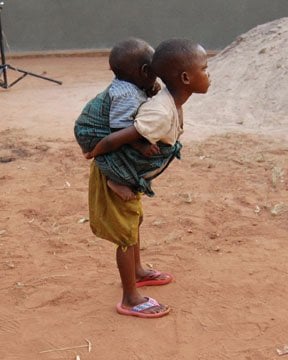
In Africa, I was blinded to my own wealth. The change I could easily plop on a “well-deserved Coke” was the equivalent of half-a-week’s worth of food to a hungry child. The car that I owned back in America placed me in only 5% of car owners globally. That my college education placed me in less than 1% of the most educated people on the planet. That my few changes of clothes in a backpack, the station I deemed poverty, was a more lavish wardrobe than some people had ever owned in their lives.
I couldn’t see the poverty of my soul for the wealth in my hands. I came to realize that as needy as they are, I am needier. They have a God that is near them in their distress and answers their cries because I would not.
By the time I left Africa, I didn’t like who I was becoming. I was cynical of many and trusting of few. I was cold in places that were once white-hot with tenderness. I needed the kind, loving person I was inside to be resurrected from the slow death of pain and corruption I had ingested for three months. I didn’t know how.
Then, we went to Zanzibar. And if I thought that mainland Africa was bad, Zanzibar was the worst. The island was heavy with tourism. Hawkers and gawkers abounded in droves. I felt my hope for warm-hearted restoration growing even colder.
As we were waiting to board a ferry back to continental Tanzania, we were sitting on a deck overlooking the beach. There was a drop of about fifteen feet between our table and the beach, and on that beach was a little boy. He held a tray of some trinkets, clearly signifying him as a vendor. He shouted at us from below, and when we leaned over to see him, he exuberantly waved his arm as wide as he could, his face bright with an open-mouthed smile.
I was skeptical. This always happened before the assault of “You need necklace!” or, “Buy me things.” I hesitantly waved and abruptly cut back to the conversation I was having with Ken, Kendra, and Katie.
Some rustling was heard below. I was waiting for the impending sales pitch, the foul ring of the dreaded “M” word. Instead, something arched the railing of the deck and landed with surprise on our table.
It was a hand-crafted bow, in the same form as the bow of a Christmas present. It was made from a banana leaf. Beneath the pretty bow, there was a loop big enough for a finger.
It was a ring, handcrafted by the child below.
Wary of taking it, we let it lie. Soon, another Christmas bow ring fluttered to the table. Then another. And as expertly as the others had landed, the last pretty ring fell. He even threw one up for Ken.
I picked it up, intrigued by it. I put it on my finger. I thought it was sweet. I called down to ask the child how much it was. When I didn’t get a response, I looked down below.
I saw him skipping down the beach, far away.
He was innocence. He was kindness. He was a little boy who wanted to freely greet us to his homeland in a dazzling blur of white teeth and happy gums. He only gave with no thought of return. He simply wanted to give us a gift we didn’t deserve. A gift that I, in all my angst and frustration and hard-heartedness, abundantly didn’t deserve.
As I watched him dance in the surf, singing to himself, and waving to everyone who passed him for no other reason than just to be kind and friendly,
I broke.
My teammates didn’t understand my tears at the time, but with a banana-leaf ring, he brought me back to life. My cynicism, skepticism, assume-the-worst-ism, died on the beach, trampled beneath a boy too happy to know he had slain a frostbitten beast of a thing that had been living inside of me because I was too afraid I didn’t have what it took to be a light in the darkness.
We can all get so overwhelmed in the tumult of need that unresponsiveness is often the response. But that’s not what following Jesus requires. I don’t have the answers, but I know that He is the answer. His love washes over a multitude of things. He speaks to me about the beautiful lives with which he’s entrusted with me, the stories I’ve heard, the faces I’ve kissed. He gave them to me through the Feed the Children commercials, but I looked away. So He brought me here so that they’re forever etched inside me, in the places too deep for a name.
Africa is tragic and beautiful, all at once. The answers to the injustice are not easy, but nothing worth it ever is.
Those ‘sheep’ are going to say,
“Master, what are you talking about? When did we ever see you hungry and feed you, thirsty and give you a drink? And when did we ever see you naked or sick or in prison and come to you?'”
Then the King will say,
“I’m telling the solemn truth:
Whenever you did one of these things to someone overlooked or ignored, that was me-you did it to me.'”


